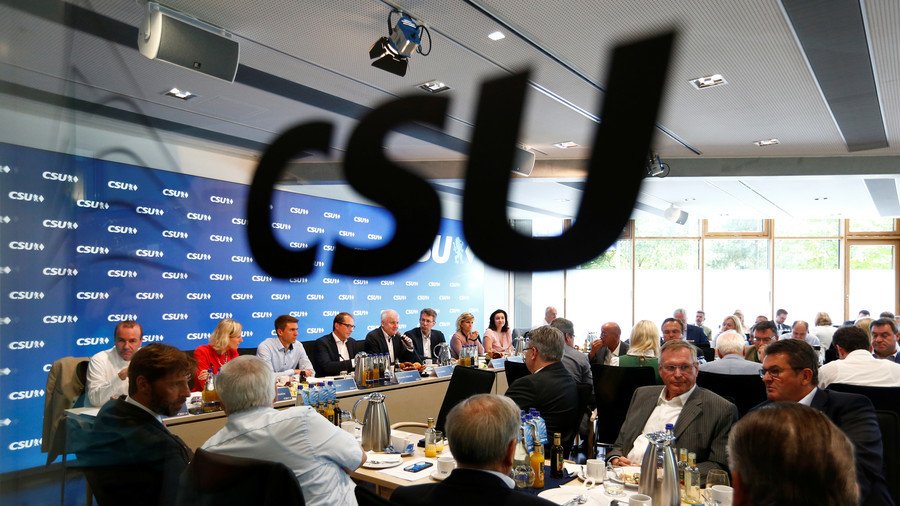Germany’s Seehofer offers to resign as CSU leader & interior minister in migration clash with Merkel

Bavarian CSU leader and Interior Minister Horst Seehofer said he would rather resign from both of his posts than back down in his severe rift with Chancellor Angela Merkel over Germany’s migration policy, local media report.
While Seehofer, who has spearheaded the opposition to Merkel’s approach to tackling immigration problems, has not officially submitted his resignation, sources at a closed Christian Social Union presidency meeting told German media that he had made such a proposal and that other party members were trying to change his mind.
A CSU press conference planned for Sunday night has, meanwhile, been cancelled, with Seehofer reportedly planning to make a final attempt at reconciliation with Merkel’s Christian Democratic Union on Monday.
According to reports, Seehofer sees few options for the CSU: Either to stand firm on the immigration dispute and risk undermining the ruling coalition, or to back down and damage the party’s credibility, reports Spiegel editor Melanie Amann. As a third option, the CSU leader reportedly offered to leave his post, possibly in an attempt to boost party members' support of his strategy.
Seehofer had previously warned that, unless Merkel came up with a satisfactory EU-wide solution to dealing with migrants, he would use his power to make sure that asylum-seekers who applied for asylum in states other than those where they’d first entered, would be turned away at the border.
Despite Seehofer wishing Merkel "much luck" ahead of her meeting with other EU members last week, his party has so far failed to approve the extremely vague immigration "compromise," which would ban Brussels from forcing states to set up migrant processing centers.
Ealier, Merkel said she believed the compromise was in line with the requirements of the CSU. "The sum of all we've agreed is equivalent to what the CSU wants – that's my personal view, but the CSU must decide for themselves," she said, as quoted by Reuters.
"It is also sustainable and in accordance with the European ideal. Europe is slow, and we aren't yet where we want to be... In my view Europe will be held together, otherwise free movement could have been in danger," she added.
But the disagreement with the immigration 'compromise' didn't only come from within Germany. Hungary, Poland, and the Czech Republic all stated that a final deal had not been reached, despite Merkel's claim that she had received "political consent" from 14 nations to strike a deal.
Merkel's party is aiming to reach a deal which would satisfy voters in the upcoming Bavarian state election in October, in an attempt to prevent the right-wing and anti-immigration Alternative for Germany (AfD) party from making gains. The topic of immigration is a hot one in Bavaria, as the state is the main transit point into Germany for migrants. The leader of the Left party Katja Kipping accused CSU of taking "all Germany and Europe in hostage for an inner party power struggle."
Like this story? Share it with a friend!

















